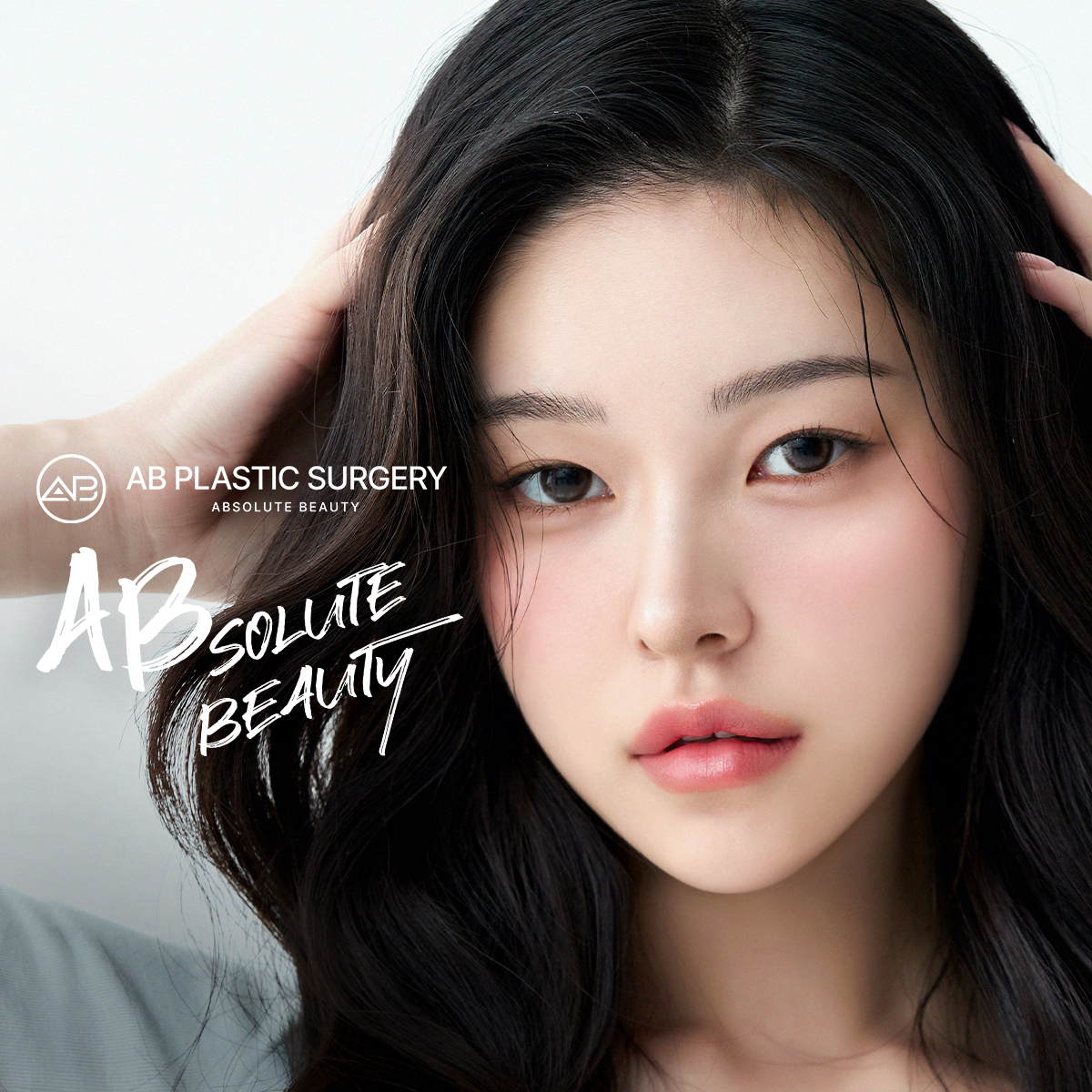Aesthetic Surgery in Korea: How to Choose a Safe and Reputable Clinic
Table of Contents
1. What is Aesthetic Surgery?
2. Why Korea Has Become a Global Hub for Aesthetic Surgery
3. Most Popular Aesthetic Surgery Procedures in Korea
4. Understanding the Real Risks of Aesthetic Surgery in Korea
5. How to Choose the Right Plastic Surgery Clinic in Korea
6. Red Flags That Should Make You Walk Away
7. Questions to Ask During Your Consultation
8. Making Aesthetic Surgery in Korea Work for You
What is Aesthetic Surgery?
Aesthetic surgery, also known as cosmetic surgery, refers to elective surgical procedures performed to enhance or improve a person's appearance according to their personal preferences. Unlike reconstructive surgery—which repairs defects from injury, disease, or birth abnormalities—aesthetic surgery is chosen by individuals who want to modify their features to feel more confident or achieve a desired look. Common aesthetic procedures include rhinoplasty (nose reshaping), eyelid surgery, breast augmentation, liposuction, and facial contouring.
South Korea has earned its reputation as a global leader in aesthetic surgery, attracting hundreds of thousands of international patients every year. If you're considering aesthetic surgery in Korea, understanding the landscape, recognizing potential risks, and knowing how to choose a reputable clinic are essential steps toward a safe and successful outcome.
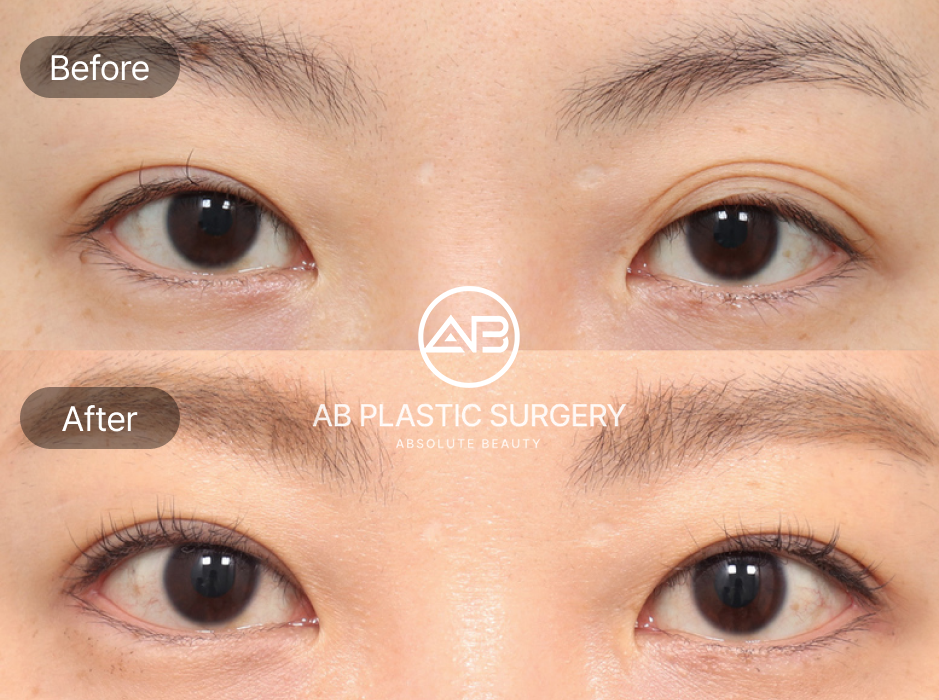
Why Korea Has Become a Global Hub for Aesthetic Surgery
Korea's cosmetic surgery industry has experienced remarkable growth over the past two decades. According to the International Society of Aesthetic Plastic Surgery (ISAPS), South Korea ranks first on a per capita basis, with approximately 13.5 cosmetic procedures performed per 1,000 individuals. The nation performs more than 980,000 cosmetic procedures annually, making it one of the most active markets in aesthetic medicine globally.
Several factors contribute to Korea's prominence in aesthetic surgery:
Advanced Medical Technology
Korean clinics invest heavily in cutting-edge equipment and innovative techniques. From non-invasive procedures to complex reconstructive surgeries, the technological infrastructure rivals that of any developed nation.
Highly Trained Surgeons
Korean plastic surgeons undergo rigorous training, typically completing 6 years of medical school followed by 4 years of specialized residency in plastic surgery. Many surgeons also pursue additional fellowship training in specific procedures.
Competitive Pricing
While maintaining high standards of care, aesthetic surgery in Korea often costs 30-50% less than comparable procedures in Western countries. This price difference, combined with quality outcomes, makes Korea an attractive destination for medical tourists.
Cultural Acceptance
In Korean society, cosmetic enhancement is widely accepted and openly discussed, which has fostered a mature, sophisticated industry with extensive clinical experience across all procedure types.
Most Popular Aesthetic Surgery Procedures in Korea
Understanding which procedures are most commonly performed can give you insight into where Korean surgeons have the most expertise:
Double Eyelid Surgery (Blepharoplasty)
This remains the most requested procedure, accounting for approximately 25-30% of all cosmetic surgeries in Korea. The procedure creates a defined crease in the upper eyelid and typically requires 1-2 weeks of recovery.
Rhinoplasty
Nose reshaping procedures are extremely popular, with Korean surgeons specializing in techniques that create natural-looking results suited to Asian facial features. Many surgeons have performed thousands of rhinoplasty procedures, giving them exceptional expertise.
Facial Contouring
V-line surgery, jaw reduction, and cheekbone reduction are signature Korean procedures. These complex surgeries require advanced surgical skills and are less commonly performed in Western countries.
Breast Augmentation
Increasingly popular among both Korean and international patients, breast augmentation procedures in Korea typically favor natural-looking results with moderate implant sizes.
Non-Surgical Procedures
Botox, dermal fillers, laser treatments, and thread lifts have seen explosive growth. These minimally invasive options appeal to patients seeking subtle improvements without surgery.
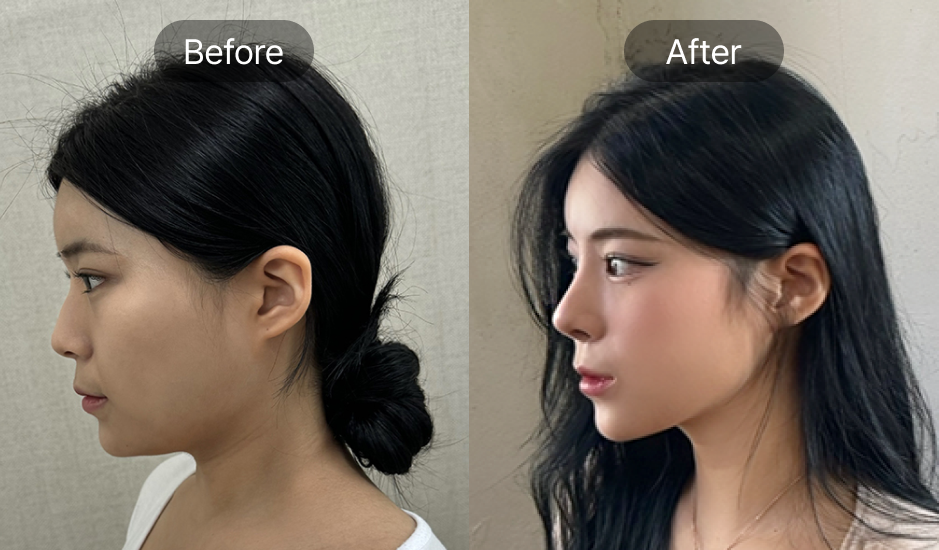
Understanding the Real Risks of Aesthetic Surgery in Korea
While Korea offers excellent medical care, international patients face unique challenges that require careful consideration:
Communication Barriers
Language differences can lead to misunderstandings about desired outcomes, surgical plans, and post-operative care instructions. Communication issues are commonly cited as a primary concern among international patients experiencing dissatisfaction with their results.
At AB Plastic Surgery Korea, we've addressed this challenge head-on. Our clinic employs fluent English-speaking coordinators who are proficient in both Korean and English medical terminology. They work directly with our surgeons to ensure nothing gets lost in translation—from your initial consultation through post-operative care instructions. This bilingual support means you'll fully understand your surgical plan, recovery expectations, and can communicate any concerns clearly.
Varying Clinic Standards
Not all clinics meet the same standards. Korea has both world-class hospitals and smaller clinics with less oversight. The Korean Ministry of Health and Welfare regulates medical facilities, but enforcement can vary.
AB Plastic Surgery Korea maintains the highest standards of facility accreditation and surgical safety. Our clinic meets all Korean Ministry of Health and Welfare requirements and follows international best practices for sterilization, equipment maintenance, and patient care protocols. We welcome prospective patients to tour our facilities virtually or in person before committing to any procedure.
Rushed Decision-Making
The pressure to make quick decisions during short trips can lead to poor choices. Many medical tourists spend only 1-2 weeks in Korea, leaving little time for proper consultation and decision-making.
This is exactly why AB Plastic Surgery Korea offers comprehensive online consultations before you even book your flight. You can reach out to our English-speaking team in advance to discuss your goals, review your photos, receive preliminary assessments, and ask all your questions from the comfort of your home. This way, you arrive in Korea with a clear plan, realistic expectations, and confidence in your decision—not scrambling to make rushed choices under time pressure.
Limited Follow-Up Care
Complications can arise weeks or months after surgery. Being thousands of miles away from your surgeon makes follow-up care challenging and expensive.
AB Plastic Surgery Korea provides comprehensive post-operative support that extends beyond your stay in Korea. Our English-speaking coordinators remain available via email and messaging apps to ensure you're never alone in your recovery journey, no matter where you are in the world.
Unrealistic Expectations from Marketing
Heavily edited before-and-after photos and aggressive marketing can create unrealistic expectations. Some clinics show composite images or use heavy filters that don't represent typical results.
At AB Plastic Surgery Korea, we believe transparency builds trust. We showcase only authentic, unedited before-and-after photos from real patients. You can review our actual patient results and read detailed patient stories with their journey documentation. What you see is what you can realistically expect—no filters, no false promises, just honest results from our experienced surgeons.
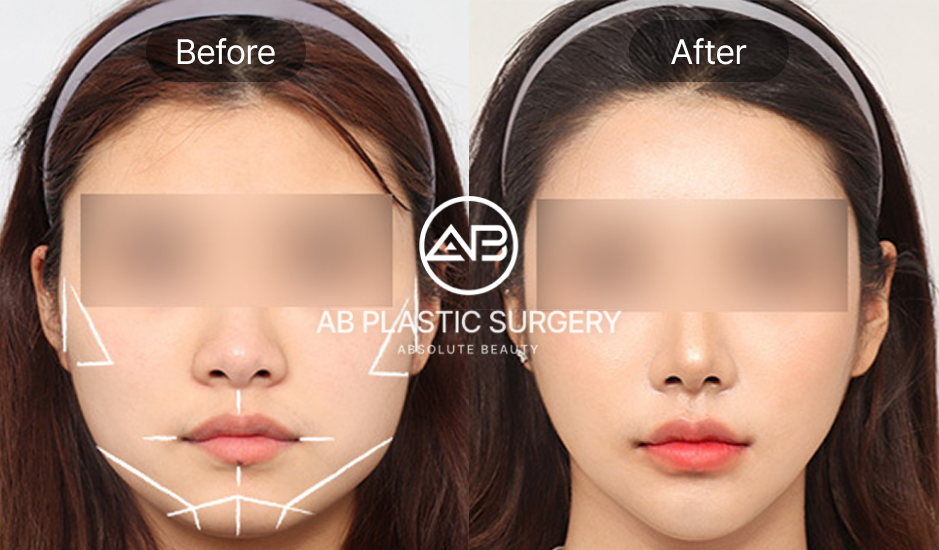
How to Choose the Right Plastic Surgery Clinic in Korea
Selecting the right clinic is the most important decision you'll make. Here's a comprehensive framework for evaluation:
Verify Surgeon Credentials
Your surgeon should be board-certified by the Korean Society of Plastic and Reconstructive Surgeons (KSPRS). This certification requires extensive training and ongoing education. Ask for:
-
Medical license number (verifiable through the Korean Medical Association)
-
Years of experience in your specific procedure
-
Number of times they've performed your desired surgery
-
Hospital privileges at accredited facilities
Legitimate surgeons will readily provide this information. Be wary of clinics that refuse or provide vague answers.
Assess Clinic Accreditation
Look for clinics accredited by:
-
Joint Commission International (JCI): The gold standard for international healthcare quality
-
Korean Ministry of Health and Welfare certification
-
Medical Korea program membership (government-backed medical tourism initiative)
These accreditations indicate that the clinic meets strict safety and quality standards, maintains proper equipment sterilization protocols, and has emergency response capabilities.
Evaluate Communication Capabilities
Effective communication is non-negotiable. Quality clinics should offer:
-
Professional medical interpreters (not just bilingual administrative staff)
-
Translated medical documents and consent forms
-
Clear explanation of procedures, risks, and recovery
During your initial consultation, assess whether you feel comfortable communicating complex medical information. If you feel rushed or confused, consider it a red flag.
Review Before-and-After Photos Critically
Request to see unedited photos of actual patients with similar features to yours. Look for:
-
Consistent lighting and angles in before-and-after shots
-
Natural-looking results (overly perfect results may indicate heavy editing)
-
Photos of multiple patients, not just the best outcomes
-
Long-term results (6-12 months post-surgery) when available
Be skeptical of clinics that only show perfect results or refuse to show a range of outcomes.
Understand the Full Cost Structure
Get itemized quotes that include:
-
Surgeon's fee
-
Anesthesia costs
-
Facility fees
-
Pre-operative tests
-
Post-operative medications and garments
-
Follow-up appointments
-
Revision policy
Hidden costs are a common complaint. Reputable clinics provide transparent, comprehensive pricing upfront.
Research Patient Reviews Carefully
Look beyond the clinic's website for reviews:
-
Independent medical tourism platforms
-
Reddit communities focused on Korean plastic surgery
-
Facebook groups for medical tourists
-
YouTube videos from actual patients (verify they're not sponsored content)
Pay attention to reviews mentioning communication, follow-up care, and how complications were handled. A few negative reviews are normal, but patterns of similar complaints are warning signs.
Plan for Adequate Recovery Time
Don't underestimate recovery needs. Most procedures require:
-
Double eyelid surgery: 7-14 days
-
Rhinoplasty: 14-21 days
-
Facial contouring: 21-30 days
-
Breast augmentation: 7-14 days
Factor in additional time for initial swelling to subside before returning home. Traveling too soon after surgery increases complication risks.
Establish a Follow-Up Care Plan
Before surgery, confirm:
-
Post-operative appointment schedule
-
How follow-up will work once you're home
-
Who to contact if complications arise
-
Whether the clinic partners with surgeons in your home country
-
Revision policy terms and timeframe
Get all agreements in writing, translated into English.
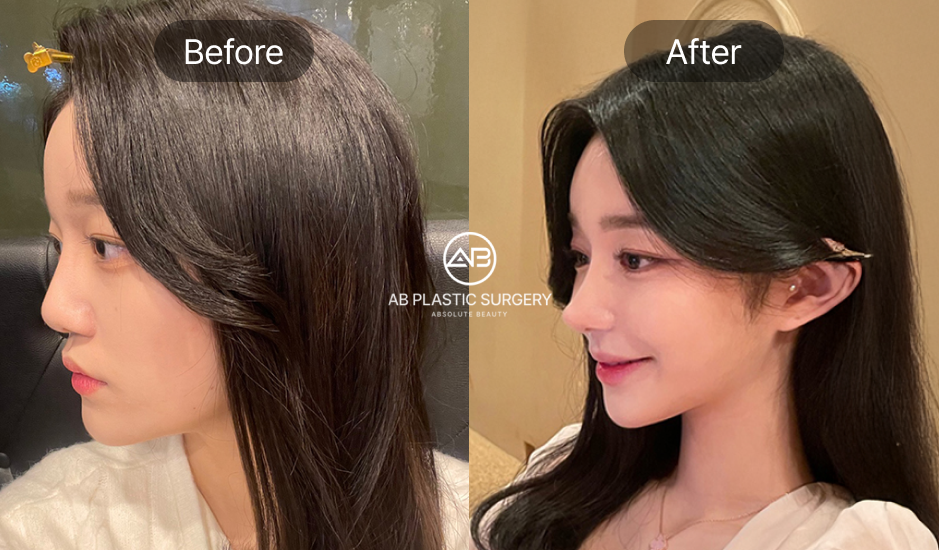
Red Flags That Should Make You Walk Away
Certain warning signs indicate you should look elsewhere:
-
Clinics offering multiple procedures at steep discounts (quantity over quality approach)
-
Pressure to book surgery immediately without adequate consultation time
-
Unwillingness to discuss risks or complications
-
"Ghost doctors" (where a different surgeon performs your surgery than who you consulted with)
-
Aggressive marketing tactics or promises of specific results
-
Lack of proper medical licensing or credentials
-
Refusal to provide detailed surgical plans or written agreements
Trust your instincts. If something feels wrong, it probably is.
Questions to Ask During Your Consultation
Come prepared with specific questions:
-
How many times have you performed this exact procedure?
-
What are the most common complications for this surgery, and how do you handle them?
-
Will you personally perform my entire surgery, or will assistants be involved?
-
Can I see your medical license and board certification?
-
What happens if I'm unsatisfied with results or experience complications?
-
How will follow-up care work when I return home?
-
What is your revision rate for this procedure?
-
Are there any reasons I might not be a good candidate?
A quality surgeon will answer these questions thoroughly and honestly. Be wary of surgeons who minimize risks or guarantee perfect results.
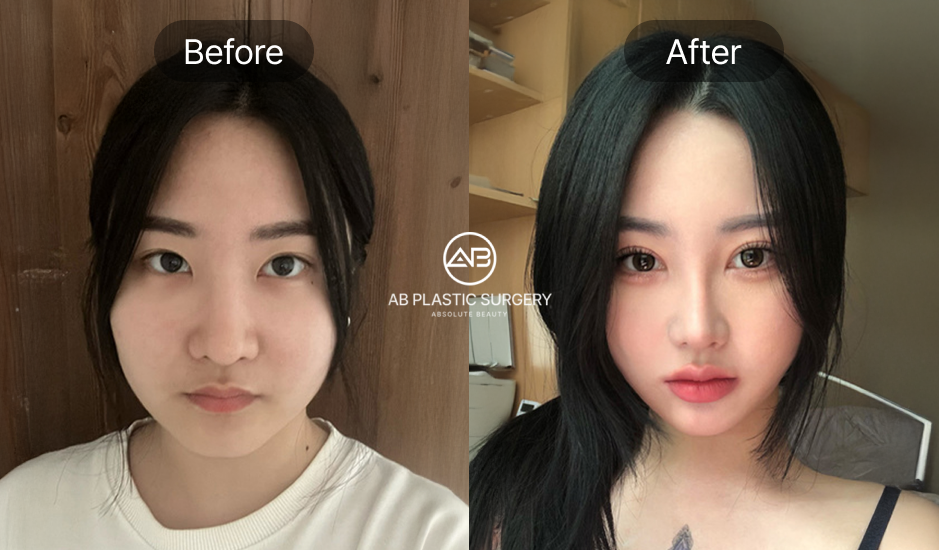
Making Aesthetic Surgery in Korea Work for You
With proper research and careful clinic selection, aesthetic surgery in Korea can offer excellent results at competitive prices. The key is approaching the process with realistic expectations, adequate time for research and recovery, and a commitment to choosing quality over cost savings.
At AB Plastic Surgery Korea, we understand that choosing to undergo aesthetic surgery abroad is a significant decision. Our board-certified surgeons have decades of combined experience, our facility meets international accreditation standards, and we provide comprehensive support for international patients—from initial consultation through long-term follow-up care.
We encourage you to research thoroughly, ask difficult questions, and make informed decisions. Whether you choose our clinic or another, your safety and satisfaction should always be the priority.
Ready to learn more? Schedule a free online consultation with our experienced surgeons to discuss your goals, evaluate your candidacy, and receive a personalized treatment plan. We'll provide honest assessments, transparent pricing, and realistic expectations—because your trust is more valuable than any single procedure.
Disclaimer: This article is for informational purposes only and does not constitute medical advice. All surgical procedures carry risks. Consult with qualified medical professionals to discuss your individual circumstances and treatment options.
